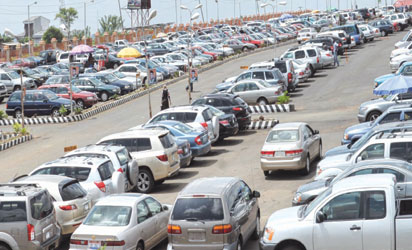Every nation has its set of laws. How these laws are implemented and obeyed define the extent the country will fare. Nigeria is known as a country with a screaming signature of official lawlessness. Those in authority rather than serve, uphold laws in breach rather than observance. It is an unending pedigree of treasury looters and unrepentant love for sleaze. This has been the undoing for decades.
However when you compare this anomaly with the aphorism that a country gets the kind of leaders it deserves, it becomes food for thought.
That said, the fact that Nigeria is currently in recession is not news. Also that Nigeria is not the only country in recession now is also not news. Besides Nigeria, Canada, Ecuador, Venezuela, Algeria, Brazil, Iraq, Russia, Libya, Azerbaijan, Kazakhstan are in recession. Of this group, Venezuela is the worst hit as predicted by the International Monetary Fund (IMF). But the fear presently is that Nigeria may go through the worst times if it does not handle its own pressure with tact.
What is the nation doing currently to get out of recession? Some highly placed persons have called for the sack of the economic managers so things do not get messy. What are the variables that must be looked at in turning the economy back on its feet? SHIPS & PORTS DAILY thinks that one area that must not be glossed over is the National Automotive Policy. Stakeholders have variously called for its review.
The Automotive Policy, which the federal government wants to use to reduce the importation of vehicles into the country to encourage local production of vehicles, is obviously not yielding the anticipated gains.
By vision, the policy is part of government’s answer to the unusual influx of substandard and over-age vehicles into the country. The government also believes that such influx contributes significantly in depleting the nation’s scarce foreign exchange. This was why in 2013, the policy when it was first muted proposed 70 per cent tariff on all Fully Built Units FBU) of vehicles. This comprises 35 per cent levy and another 35 per cent duty on fully built vehicles imported outside the policy, while importers of Semi Knocked Down (SKD) parts are to enjoy 10 per cent tariff and five per cent tariff on other categories of SKD.
The policy also provides for zero per cent tariff on Completely Knocked Down (CKD) and capital equipment used in auto assembly parts, which is in line with the government’s policy of encouraging local assembling of vehicles as against the importation of fully built units and other used vehicles with attendant capital flight. But the policy, which took effect since January 1, 2015, led to an appreciable rise in the prices of vehicles.
The patronage on car import has nose-dived. All the ports in the country involved in roll on roll off (RORO) operations are lamenting. The revenue that was to accrue to the government has been on the downslide since there is business slowdown. From findings, business in the automobile industry is down by about 60 per cent, representing a huge drop in revenue for the country. Also there is a huge diversion of traffic to Benin Republic and what Nigeria is losing; this tiny country is reaping. The bad side of it is that Benin Republic which has always been one of the major conduits for loss of imported vehicles revenue in Nigeria, became increasingly so after the implementation of the auto policy.
There has been loss of jobs and revenue for the government, which experts have quantified to be over N400 billion, which would have otherwise been collected by Customs and other agencies of government as revenue.
A good thing is that the government is currently in the process of reviewing the policy as indicated recently by the Minister of Industry, Trade and Investment, Dr. Okechukwu Enelamah. Some stakeholders had suggested that based on certain fundamentals in the nation’s economy, the auto policy ought to have been given at least a decade of incubation before its full implementation so as to ensure that the right enabling environment is in place to guarantee its success.
There is an uneasy feeling that with the hurried implementation, undue advantage was given to a few people who are using the opportunity to shortchange the nation through unscrupulous practices to make huge money at the expense of the national economy.
SHIPS & PORTS DAILY joins the call by those who believe it has become very necessary that the government takes a second look at the auto policy so as not to inflict more suffering on Nigerians, especially workers whose salaries have remained the same while prices skyrocket.
As has been pointed out by stakeholders, the government should look at making the importation of cars and trucks more competitive to enable the economy grow. Suggested area is reduction in the duty payable on cars and trucks to alleviate the burden on citizens.
We recommend that the federal government make good use of inputs from stakeholders as it has agreed to do, sift the suggestions properly so as to come up with a well thought out automotive policy that would be very relevant to the needs of the nation at this time and age.
Related Posts:
Copyright Ships & Ports Ltd. Permission to use quotations from this article is granted subject to appropriate credit given to www.shipsandports.com.ng as the source.

